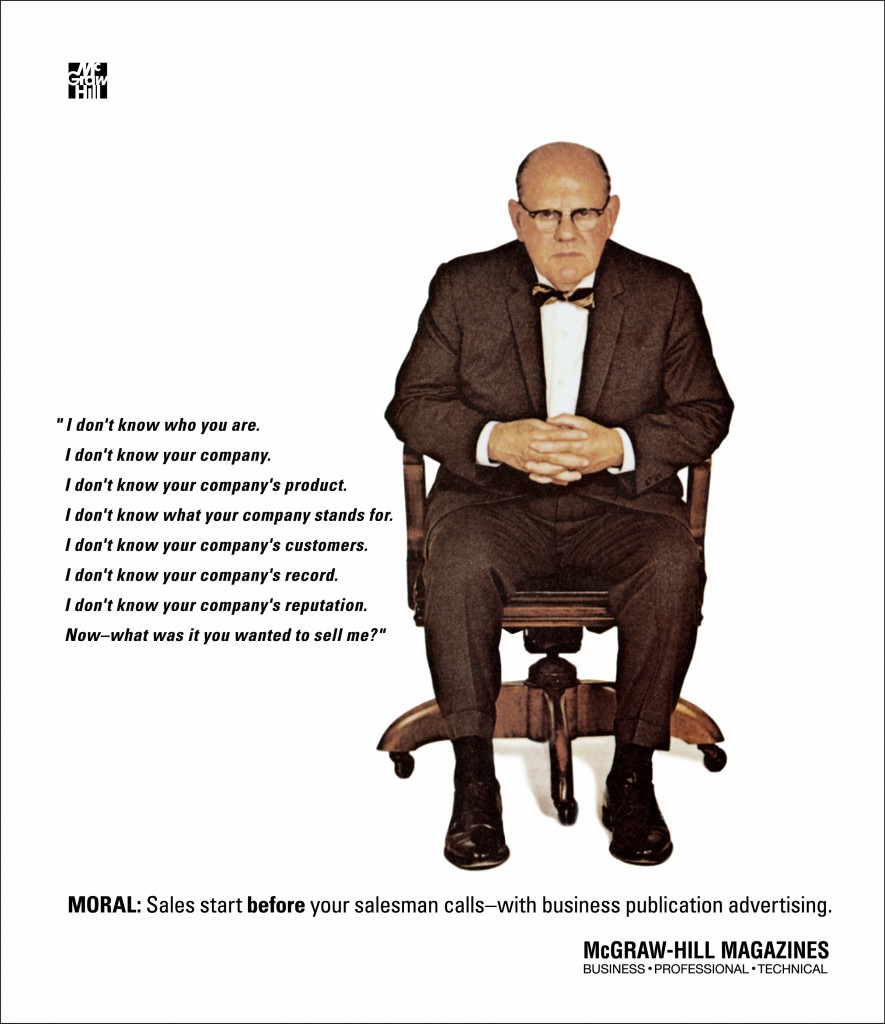Sexification of B2B… maybe

Dominic Mills investigates why Publicis seems to see B2B as an area of growth where no-one else has. Plus: the showdown between the nation state and the supranationals finally arrives
I’ve been a business journalist for about 30 years, and therefore worked in an environment partly or completely funded by business advertising. It’s a sad indictment of the quality of that advertising that very few have ever stuck in my mind.
As a specialist financial journalist I used to laugh at bank ads targeting corporate clients that were always about teamwork — as if the relationship between supplier and client was really like that!
For some reason teamwork was always visually expressed through an analogy with rowing. Thus, there was always a picture of macho men powering down the river in their sleek eight accompanied by copy about “power, precision and pulling together” or similar nonsense, perhaps with the word “passion” thrown in for good measure.
If it wasn’t about rowing, then the ads often focused on so-called product benefits designed to appeal to the left-hand side of the brain. No B2B advertiser ever seemed to consider that their buyers might be people too with, you know, a right-brain view of the world.
About the only advertiser that ever came close was IBM, whose ‘no-one ever got fired for buying IBM’ did at least appeal to the fear emotion.
In fact the best B2B ad I’ve ever seen is about 50 years old. It was for McGraw-Hill, then a major publisher, and was in fact for the power of B2B advertising itself, ideally in the publisher’s own titles. A grumpy-looking man of about 50 sits in a chair and says: “I don’t know who you are. I don’t know your company. I don’t know your company’s products.”
He continues in this vein before delivering the punchline: “Now — what was it you wanted to sell me?”. It looks very dated now, but the basic sentiment is timeless: business services are expensive and important so you buy from people you trust, and trust begins with awareness.

If the ad ever inspired B2B advertisers to raise their standards, it passed me by. The sector has remained resolutely unsexy. If mainstream consumer agencies ventured into B2B, they kept their subsidiaries locked in the basement as though they were second- or third-class citizens, exposure to whom might infect them with a terrible dullness. Sexy they were not.
So it was with some surprise last week that I saw the news that Publicis — which has recently spent its M&A cash acquiring hot digital and data businesses like Epsilon — has splashed out in the UK on buying Octopus Group, a specialist B2B agency. I don’t think many people saw that coming.
So the question is, why does Publicis see B2B as an area for growth where no-one else has?
And the answer, I think, is that it is in the throes of major change. The main reason mainstream agencies didn’t bother with B2B before was that they couldn’t make any money out of it. Production budgets were low — mainly restricted to specialist press and mailshots — and since target markets were tightly focused, there was no media volume to make up for it.
If the agency was lucky, an enlightened client realised it needed to produce ‘content’ — magazines! — but most of that was hoovered up by specialist agencies also removed from mainstream consumer shops.
But no more. I can see three areas where there is fundamental change.
First, take the latest Super Bowl two weeks ago which featured, for example, ads from accountancy software company Intuit, freelancer platform Fiverr and Squarespace — and thanks to Octopus itself for this blog post drawing my attention to this phenomenon.
You can call this the democratisation or (language purists look away now) ‘massification’ of business brought on by digitisation: it’s a world in which anyone can set up a business without much capital and without much regard for geography. These businesses themselves will chase consumers in the normal way, but they represent a mass market for anyone who supplies them with software, fulfilment, accounting, payment services and so on.
The second major change is also down to digitisation, insofar as the media canvas on which B2B advertisers can paint is infinitely expanded. Video is a good example where, if you are so minded, you can watch endless accountancy tutorials in Sage or Xero software on Youtube, Facebook and their own channels — like this.
And the third, a by-product of digitisation, is the ‘de-corporatisation’ of business, in which the audience wants to be talked to like humans rather than office clones.
All this means that B2B advertising need no longer be as dull as it was. Publicis therefore may be ahead of the game in recognising that the distinctions between consumer and business advertising are blurring.
Does that mean then that we are seeing the ‘sexification’ of B2B? Hmmm…I don’t know. In the end, it rather depends on B2B client marketing directors to complete the circle. And here I am less optimistic. But happy to be proved wrong.
Nation state vs supranational
Well, at last. After years of posturing and big talk, we finally have the showdown between the nation state (Australia) and the supranationals in the form of Facebook and Google.
It’s been a long time coming and undoubtedly sets a template for more action from other countries. The immediate question is about the funding — survival is a better word, really — of professional media, but the bigger question, and perhaps the real battle, is this: are the tech giants really so powerful they can ignore the wishes of a nation state?
Google has, it seems, blinked and acknowledged that defying the wishes of a democratically elected government is not a good look, agreeing to deals to pay for content from a number of media outlets.
[advert position=”left”]
You could interpret this as a sign that Google is more interested in being a good citizen and/or that it has a more symbiotic relationship with the news media than Facebook.
Facebook, meanwhile has gone the other way, essentially giving Australia the finger. “We’re bigger than you”, it is saying. Which may be true, since Australia is, relatively speaking, a small market. It may change its mind if or when it is confronted by a more powerful country.
But it is worth pointing out that the proposed Australian legislation, however well-intentioned, is based on an unusual premise: it forces Facebook to pay for links over which it has no control and which are posted by those self-same news organisations.
But the news organisations might also ask themselves: how did we allow ourselves to become so dependent on Facebook?



